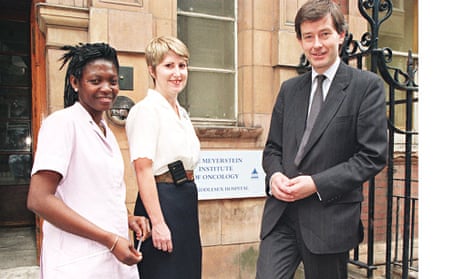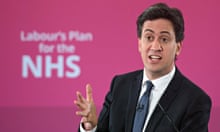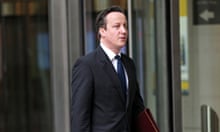In a parliamentary career that will have spanned 36 years when he draws it to a close in May, Stephen Dorrell has always been on the patrician left of the Tory party. “I was a wet,” he says gleefully of his early days as an MP, when Margaret Thatcher’s premiership was in its infancy.
He arrived at Westminster in 1979 as the youngest member of the Commons, aged 27. Always a polite, cerebral figure, Dorrell is one of those politicians who rebelled enough to be noticed, but not so regularly as to impede his career.
Under Thatcher, he spoke out early against changes to immigration rules that he thought threatened civil rights and opposed Geoffrey Howe’s policy of keeping interest rates high to squeeze out inflation. “I didn’t agree with all the analysis of the group around Thatcher,” he says. The then prime minister, though infuriated by the young Dorrell at times, was impressed by his clarity of thought and shunted him into the whip’s office, where he had to toe the line.
He became a junior health minister in 1990 and under John Major was seen as deft enough to speak for the government on crises as grave as Black Wednesday.
“I’ve always quite enjoyed dealing with journalists – I characterise a television interview as being like a batsman at a crease,” he said at the time. “I try to avoid being out and try to score runs when you get an opportunity.”
Major saw Dorrell as a possible successor, promoting him to the cabinet, first as heritage secretary and then as health secretary when he was just 43.
Now, having stepped down after four years as chairman of the health select committee last June, he is less worried about occupation of the crease, and more willing to play his shots.
He supports David Cameron and does not think he has swung the party to the right. “It is very hard to argue that a party led by David Cameron now, and Margaret Thatcher then, has moved to the right,” he says. But talking to the Observer, he speaks his mind on what he regards as serious errors made by the Cameron government on health, the issue that is likely to be front and centre of the general election campaign.
Asked if he regards the Health and Social Care Act of 2012, driven through the Commons by Andrew Lansley in the face of furious opposition from the health sector, as the biggest mistake of this parliament he is in no doubt at all. “Yes I do agree with that. The reason I agree with it is partly for the political fallout, but the thing I care most about is the lost opportunity in the health and care system.”
In a dig at Lansley, he says politicians these days don’t think through their ideas and head off instead in search of headlines. In Thatcher’s day he believes there was more intellectual and policy rigour. “Politicians have always been interested in headlines, of course they have. But they have become more willing to settle for a story than a policy,” he said.
Dorrell voted for the Lansley bill – which abolished primary care trusts and strategic health authorities and transferred £80bn of healthcare funding to clinical commissioning groups – because it introduced “some worthwhile changes” such as health and wellbeing boards. But he says the massive institutional reorganisation was largely unnecessary and meant the government overlooked the far more urgent challenge of improving the NHS so that fewer people have to go into hospital, and that those who do are discharged as soon as possible.
“I certainly think that it would have been far better done by a very minimalist change in the law to achieve the necessary changes rather than trying to redraw the management structure, which isn’t the problem anyway,” he says. “There is no such thing as a perfect management structure, but the irony is that every time you change the management structure, the managers focus on changing management. What they don’t do is focus on changing healthcare.”
What they should have done, he argues, is integrate health and social care, and end a situation in which people “go to A&E because it is the only place the lights are on”. Currently, information about an elderly person is held by the social care system, the social housing system, the pharmacist, the community nurse, the GP – “all of them separate systems; none of them related to each other. How can you deliver care when you are running this massive multiplicity of uncommunicative bureaucracies?
“Not only do they not exchange information or use information with each other. They also have separate budgets. The example is the handrail which stops admission to the fracture clinic. Prevention is not merely cheaper. It is better.”
Asked why his own party failed to see the obvious, he says: “You will have to ask them that.” The result is that the crisis remains to be addressed. Did Lansley simply miss the point? “Yes that is my view,” says Dorrell.
He insists that he told the powers that be at the time that they were on the wrong road. “I remember very well writing it down, expressing my view and being told ‘we have thought about your view, we respect it, but we disagree with it.’ ”
As he counts the days until he leaves parliament, he despairs of much of the political debate on health, saying the main parties pretend to have differences that do not exist. It is impossible, he admitted, to “depoliticise” health policy completely but “that doesn’t mean that the parties have to invent disagreements where there aren’t any.
“That is where the health debate is so depressing. If there were [such differences] how come we invented trusts and the amendment they [Labour] had was foundation trusts? We had health authorities and they had PCTs. We have now got CCGs. These are angels-on-a pinhead territory.” He says the Tories would benefit from developing a “common agenda” with the other parties on the NHS and care, even “drawing on quite a lot of what Labour says”.
Having failed to persuade a Conservative-led government to change direction from his seat in parliament, he will now try to do so from outside, working as a senior adviser on health at management consultants KPMG, a private sector adviser to ministers. “The theme I will be developing is the case that I have made as chair of the select committee: that health and care is a sector which needs to change.”











Comments (…)
Sign in or create your Guardian account to join the discussion